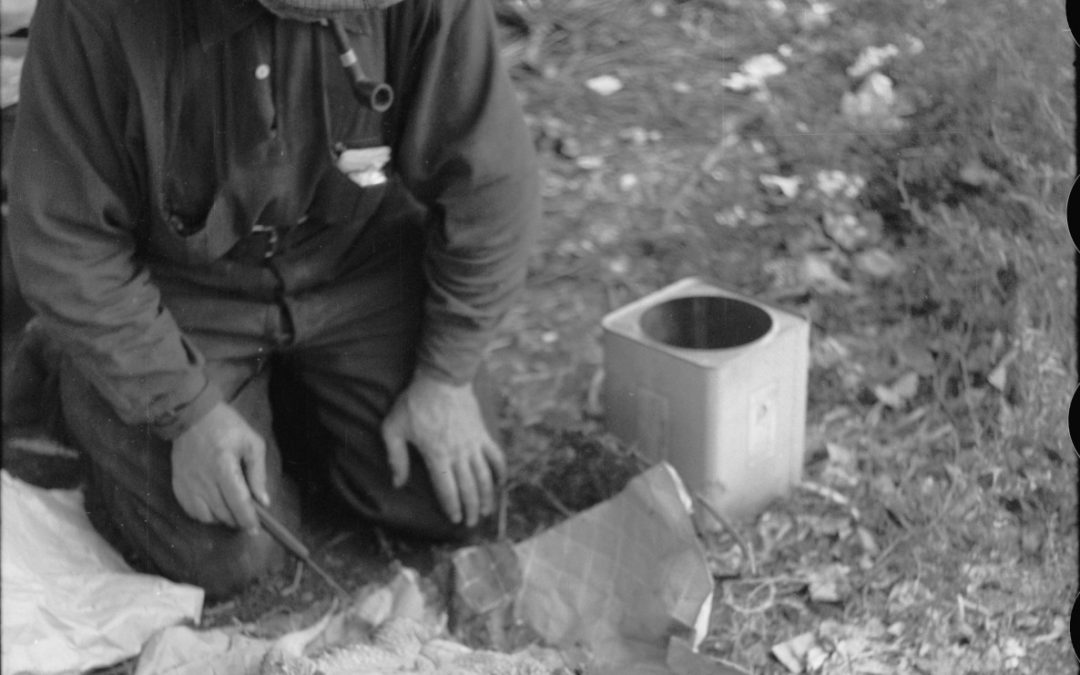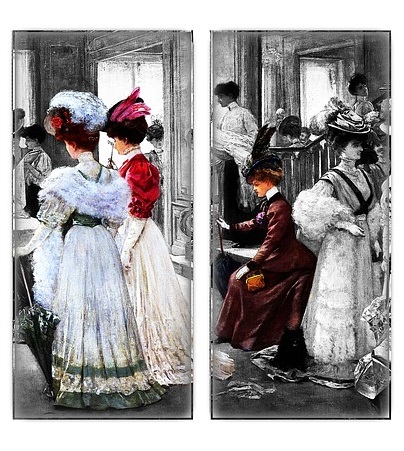
by Richard Subber | Apr 1, 2020 | Human Nature, Reflections, Tidbits
The “Hobo Ethical Code”
Maybe you were thinking there’s no such thing as a “Hobo Ethical Code.”
(I’m not talking about “Politician’s Ethical Code,” don’t get me started….)
In 1889, at the Hobo National Convention in Chicago, the folks who proudly called themselves “hobos” adopted an ethical code that stands the test of time. You can read it below.
You’re right, we don’t have to spend a lot of time these days on the “boil up” part, but just about everything else in the 15-point code has some application to life today.
In fact, living like a noble hobo doesn’t sound like a bad idea at all.
For the record, a hobo is a migratory or homeless worker who looks for work, standing apart from the “tramp” who works when there isn’t much of an alternative and the “bum” who avoids work altogether.
Decide your own life; don’t let another person run or rule you.
When in town, always respect the local law and officials, and try to be a gentleman at all times.
Don’t take advantage of someone who is in a vulnerable situation, locals or other hobos.
Always try to find work, even if temporary, and always seek out jobs nobody wants. By doing so you not only help a business along, but ensure employment should you return to that town again.
When no employment is available, make your own work by using your added talents at crafts.
Do not allow yourself to become a stupid drunk and set a bad example for locals’ treatment of other hobos.
When jungling in town, respect handouts, do not wear them out, another hobo will be coming along who will need them as badly, if not worse than you.
Always respect nature, do not leave garbage where you are jungling.
If in a community jungle, always pitch in and help.
Try to stay clean, and boil up wherever possible.
When traveling, ride your train respectfully, take no personal chances, cause no problems with the operating crew or host railroad, act like an extra crew member.
Do not cause problems in a train yard, another hobo will be coming along who will need passage through that yard.
Do not allow other hobos to molest children; expose all molesters to authorities…they are the worst garbage to infest any society.
Help all runaway children, and try to induce them to return home.
Help your fellow hobos whenever and wherever needed, you may need their help someday.
p.s. It seems that no one knows how the word “hobo” originated.
* * * * * *
Copyright © Richard Carl Subber 2020 All rights reserved.
Book review:
Collected Poems of Sara Teasdale
Full of her passion, not mine…
click here
–
My first name was rain: A dreamery of poems with 53 free verse and haiku poems,
and the rest of my poetry books are for sale on Amazon (paperback and Kindle)
and free in Kindle Unlimited, search Amazon for “Richard Carl Subber”
* * * * * *

by Richard Subber | Mar 17, 2020 | My poetry, Poetry, Reflections
Look who’s counting!
At a certain age, counting fingers is a big thing.
Numerology
He’s counting his fingers now,
another threshold passed without a look back.
He puts some energy into it,
doesn’t remember to count every one every time,
but he’s counting, he’s doing it.
Old Grandfather starts it off,
tapping fingertips,
“One, two, three…”
and he picks up the rhythm,
splaying the fingers of one hand,
fearlessly extending the count,
“…four, five, seven, eight.…”
A couple of those eager fingers get counted twice,
sticking up like chicks in the nest stretching for the worm,
and that’s alright, those fingers are stretching
for the joy of discovery
and the cool of flashing in the air
in the ritual of counting fingers with Old Grandfather,
and counting twice is confirmation, not a sin.
We do it again.
Same noisy delight. Different count.
Someday he’ll understand that doing it together is what counts.
October 10, 2015
My poem “Numerology” was published in my first chapbook, Writing Rainbows: Poems for Grown-Ups. You can buy it on Amazon (paperback and Kindle), or get it free in Kindle Unlimited, search for “Richard Carl Subber”
Previously published in The Australia Times Poetry, miller’s pond poetry magazine, and Whispers.
* * * * * *
My poetry. Copyright © Richard Carl Subber 2020 All rights reserved.
“…the ravell’d sleeve of care…”
wish I’d said that…(a bit of Shakespeare)
–
My first name was rain: A dreamery of poems with 53 free verse and haiku poems,
and the rest of my poetry books are for sale on Amazon (paperback and Kindle)
and free in Kindle Unlimited, search Amazon for “Richard Carl Subber”
* * * * * *

by Richard Subber | Jan 9, 2020 | Global climate change, Human Nature, Politics, Reflections, Tidbits
actually, not an unthinkable thought…
“Owing in large measure to humankind’s
long, steadily accelerating career of habitat shattering,
the rate of extinction is currently
about a thousand times what is normal.
That’s how fast the planet’s biotic community
is losing member species these days…
I can’t get that extinction crisis out of my mind.
Extinction is not abstract in the least.
It’s the thousands of instances of the desolation
of being the last of one’s kind.”
Stephanie Mills, excerpt from “The One Who Steals the Fat,” The Sun magazine, January 2001
We’re not accustomed to thinking in truly absolute terms—think about it, extinction is the end.
Think again about your grandchildren.
Think again.
* * * * * *
Copyright © Richard Carl Subber 2020 All rights reserved.
Book review: Shakespeare’s Wife
Germaine Greer went overboard a bit…
–
As with another eye: Poems of exactitude with 55 free verse and haiku poems,
and the rest of my poetry books are for sale on Amazon (paperback and Kindle)
and free in Kindle Unlimited, search Amazon for “Richard Carl Subber”
* * * * * *

by Richard Subber | Jan 6, 2020 | Book reviews, Books, Global climate change, History, Reflections, World history
It’s worth a second read…
Book review:
On the Beach
by Nevil Shute (1899-1960)
New York: Vintage International, Vintage Books, 1957
312 pages
I could not read On the Beach again without taking on some of the terminal burden of the characters. I awakened some of my disturbing memories (Weltschmerz, perhaps) of reading it the first time, almost 60 years ago.
Maybe you think you know the story line: in the aftermath of worldwide nuclear destruction, an inescapable deadly radioactive miasma is finally devastating Australia. The land down under is the last refuge of human beings on the planet.
All of them know they’re going to die in a couple months. Many of them choose to live as if they don’t know it.
The reader doesn’t need to apply much imagination. On the Beach is a baldly powerful chronicle of the unyielding imperatives of human nature, including the impulse to work side by side with someone you love, planting a garden, hoping to share a rich crop next year, ignoring the darkness in the northern sky.
Nevil Shute’s story is not out of date.
I desperately fear that my grandchildren may be re-reading this book as they survive in the hills, trying to ignore the advancing seas below.
* * * * * *
Book review. Copyright © Richard Carl Subber 2020 All rights reserved.
Book review: Shantung Compound
They didn’t care much
about each other…
by Langdon Gilkey
click here
–
Above all: Poems of dawn and more with 73 free verse poems,
and the rest of my poetry books are for sale on Amazon (paperback and Kindle)
and free in Kindle Unlimited, search Amazon for “Richard Carl Subber”
* * * * * *

by Richard Subber | Jun 25, 2018 | Books, Books Commentary, Language, Reflections
Dickens is all about
generous indulgence…
Book review:
The Dickensian Boz…
Of course, they don’t write ‘em like this anymore.
I’m talking about Charles Dickens (1812-1870). I’m talking about Sketches by Boz, his first book published in 1836.
I’m talking not only about the obvious (Dickens has been dead these many years), but also about my understanding of the palpably inimitable Dickensian style.
Dickens does not fail to offer, time after time after time, character portraits that spring to life as you turn the pages, characters described with disinterested honesty, stout-hearted realism, generous indulgence, often a touch of whimsy….
Take just one hilarious case in point: “The Four Sisters,” who inhabit No. 25 Gordon Place in Sketches by Boz. In his brief (five pages) acknowledgement of these cloistered ladies, Dickens ventures to create four personae that are not, will not, cannot be demeaned as a stereotype.
The Miss Willises—Dickens doesn’t need to trouble himself about not calling them the misses Willis—are a scream, in a fastidiously literary kind of way.

Here’s a taste:
“The house was the perfection of neatness—so were the four Miss Willises. Everything was formal, stiff, and cold—so were the four Miss Willises. Not a single chair of the whole set was ever seen out of its place—not a single Miss Willis of the whole four was ever seen out of hers. There they always sat, in the same places, doing precisely the same things at the same hour…They seemed to have no separate existence, but to have made up their minds just to winter through life together…The eldest Miss Willis grew bilious—the four Miss Willises grew bilious immediately. The eldest Miss Willis grew ill-tempered and religious—the four Miss Willises were ill-tempered and religious directly. Whatever the eldest did, the others did, and whatever anybody else did, they all disapproved of…”
I think this, like so many passages in Dickens, is a singularity.
Sketches by Boz, indeed.
Re-reading Dickens is a real treat for me.
* * * * * *
This is a book commentary, not quite a book review. I have a love affair with words. I mean carefully chosen words, words that express in exceptional ways the boundless variety of our thoughts, experiences, and emotions. I think a lot about life, the human condition, loving relationships with others, and the many levels of beauty, serenity and delight in our natural environment. It’s stimulating to read the pithy words of real wordsmiths. I offer my reflections on their wonderful work.
* * * * * *
Book review. Copyright © Richard Carl Subber 2018 All rights reserved.
Puppy space
…if dogs could write poems…
“One dog’s world” (my poem)
click here
–
Writing Rainbows: Poems for Grown-Ups with 59 free verse and haiku poems,
and the rest of my poetry books are for sale on Amazon (paperback and Kindle)
and free in Kindle Unlimited, search Amazon for “Richard Carl Subber”
* * * * * *

by Richard Subber | Jan 30, 2018 | Language, My poetry, Poetry, Reflections
…a new learning…
A soft foot
As with another eye
I see the moor,
its quiet folds
that need no glance from me,
its hues of earth and sky
so naturally disposed.
I step with care,
I stand long moments there
to feel the reverence of being
and the pleasure of my spirit
stepping free of me
and leaving unfamiliar stillness
in my heart
and in my mind,
a new learning.
I will walk this moor again,
and fill myself again with calming joys.
November 9, 2016
“A soft foot” was published January 23, 2018, in my second collection of 47 poems, Seeing far: Selected poems, now for sale on Amazon (paperback and Kindle), or free in Kindle Unlimited, search Amazon for “Richard Carl Subber”
Inspired by “The Moor” by the Welsh poet R. S. Thomas (1913-2000). Thomas recounted his passage on the moor—“…I entered it on soft foot…”—when he felt a “…stillness of the heart’s passions…” I imagined a respectful conception of a quiet moor, and a quiet time of solitary exploration and a gift of harmonious perceptions. I was not disappointed. I walked the walk.
* * * * * *
My poetry. Copyright © Richard Carl Subber 2018 All rights reserved.
As with another eye: Poems of exactitude with 55 free verse and haiku poems,
and the rest of my poetry books are for sale on Amazon (paperback and Kindle)
and free in Kindle Unlimited, search Amazon for “Richard Carl Subber”
The “dime novels” in the Civil War
Think “blood-and-thunder”…
click here
* * * * * *






